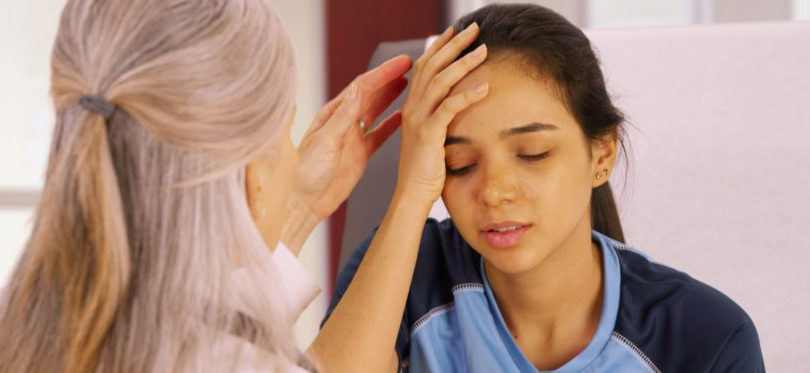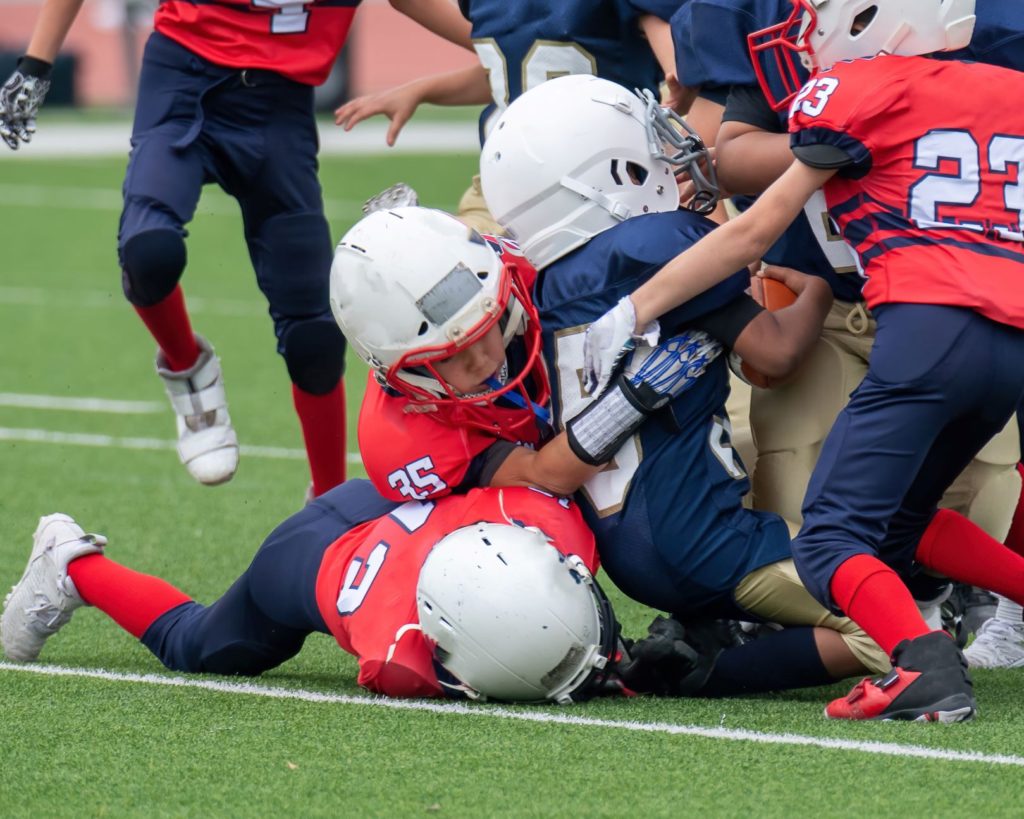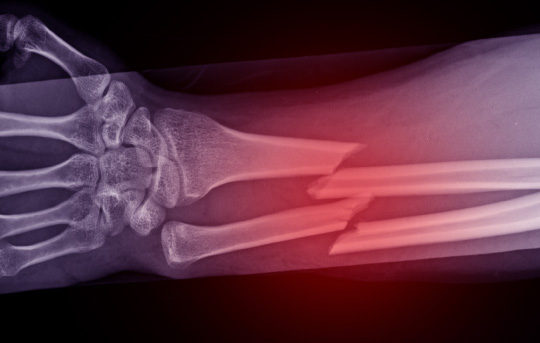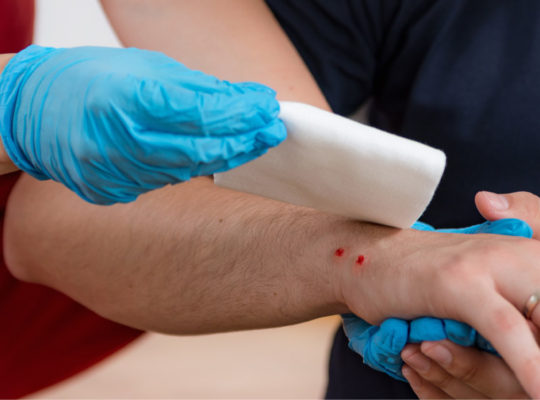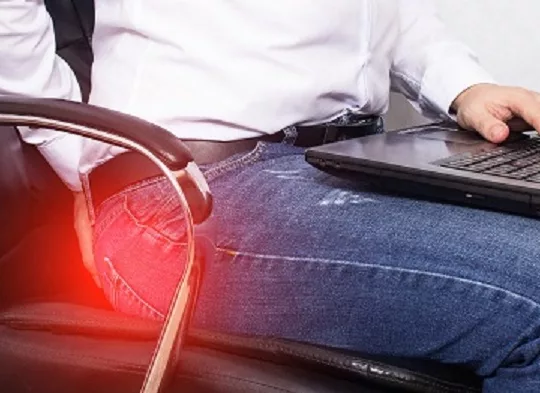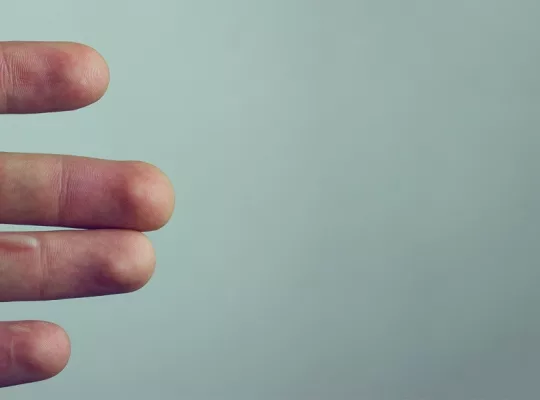What is a concussion? How do concussions happen?
A concussion is a mild traumatic brain injury caused by a bump, blow, or jolt to the head or body that causes the brain to move. All concussions are serious and should be treated as such. The brain is a soft and squishy organ surrounded by a protective barrier of cerebrospinal fluid. This fluid serves as a cushion between the hard skull and fragile brain matter. While most people recover quickly, proper treatment and precautions should be taken to prevent the injury from worsening.
Anyone can suffer from a concussion, but some groups are more at risk than others. They are common in athletes but can also happen in auto accidents or other types of crashes. They are caused when the brain hits against the inside of your skull. About 3.8 million concussions happen each year in sports. Older people and children under four are more likely to suffer a blow to the head than others. No matter who you are, take a blow to the head seriously.
Concussion First Aid: Symptoms and Response
When someone injures their head, first, check for consciousness. Concussions can cause a loss of consciousness, but this is less common. If someone experiences loss of consciousness for more than a minute, seek professional medical attention. If someone is unconscious, check for signs of a neck injury. When in doubt, do not move the victim and call an ambulance. It’s always better to stay on the safe side. In these situations, having backboard straps can help ensure the victim is immobilized properly while waiting for professional help. The backboard straps stabilize the patient, helping prevent further injury.
Next, check for symptoms. Some signs of a concussion can include headache, dizziness, nausea, fatigue, and confusion, some of which might not become obvious until hours after the initial injury. If there is a blow to the head, athletic trainers, bystanders, and parents should immediately be on the lookout for any of these symptoms and remain vigilant in looking for the symptoms for the following 24 to 48 hours.
Some symptoms of a concussion may include headache, ringing in the ears, nausea, vomiting, fatigue or drowsiness, slurred speech, confusion, memory loss, delayed question response, and/or loss of consciousness. Some of these symptoms may occur immediately, while others may appear in the days following the injury. Symptoms that may occur later include concentration and memory problems, irritability, personality changes, light and noise sensitivity, sleep problems, depression, and taste and smell irregularities.
If there is any suspicion of a concussion, an athlete should not return to the field until being evaluated by a doctor. Preventing a permanent injury is more important than any game.
How are concussions diagnosed?
Only medical professionals are qualified to determine if someone is concussed. If you or someone you’re with experiences any combination of symptoms of a concussion, stop any physical activity and see a doctor because sustaining another concussion before healing from the first one greatly increases the possibility of more severe brain injuries.
Err on the side of caution if you notice a change in someone who has hit their head.
If you see a doctor, they will consult your medical history and symptoms and perform an exam to measure your cognitive ability to determine the best course of action. Your doctor may conduct additional imaging like a CT scan or an MRI to rule out more serious damage like brain bleeding. Overnight observation may be necessary. There is always new research being done concerning concussion diagnosis and treatment, especially for athletes. Athletic trainers and team doctors are becoming increasingly conservative in their approach to the health of their players and the diagnosis of concussions. They are using new tests that help to detect concussions right on the field. One of these tests is the K-D test, which can detect 79% of concussions on the field within two minutes. This test compares vision and comprehension to a baseline test taken before the season. This helps to determine if an athlete should be sidelined for the rest of the game or is cleared to return to the game. The K-D Test is being adopted in schools across the country to increase student and athlete safety.
How to treat a concussion without a doctor:
- Observe and monitor for new or worsening symptoms. If this happens, consult a medical professional.
- For the first 24 hours, avoid medications that can have an increased risk of bleeding like ibuprofen (Advil), naproxen sodium. You can use extra-strength acetaminophen during the first 24 hours. After a day has passed, you can use Advil and similar products. You can also apply an ice pack for additional relief.
- The best way to recover is to rest! Near complete rest for the first 24-48 hours is critical. It is normal to experience fatigue or drowsiness as your brain heals. Get plenty of sleep at night and nap or rest during the day if you are tired. Listen to your body!
- Limit physical activity. After the first couple days, you can return to light physical activity like chores at home or a short walk. Your doctor will determine when you can return to physical activity and exercise.
- Don’t strain your brain! Avoid activities like homework or that may require more brain power as it can worsen symptoms and prolong your recovery. While you begin to recover, you can participate in leisure activities like pleasure reading or listening to music. As your symptoms begin to dissipate, then you may return to normal thinking.
It can take some time for the brain to recover, so be patient!
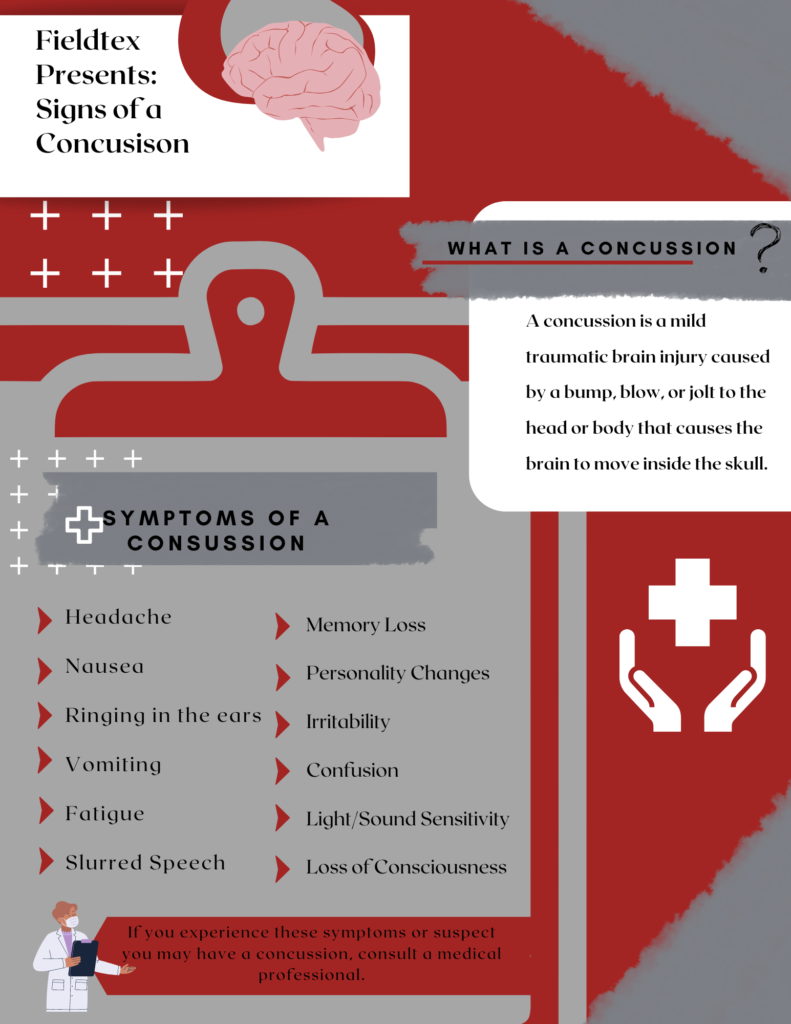
How long will a concussion last?
The long-term effects that severe and repeated concussions have on the brain are now being studied extensively. Many famous former athletes suffer from memory loss, forgetfulness, and depression due to repeated and untreated blows to the head during their career. These players are now realizing that when they suffered a concussion and continued to play, they were causing permanent damage to their brain.
80% of concussions are expected to be resolved in seven to 14 days. Figure on 10 days to be safe. After a concussion, an athlete should never return to the field or other physical activity for at least one week after sustaining the injury. Whether you are a professional athlete, or you’ve hit your head in a fall, take your injury seriously and take the time to recover. Your brain will thank you!
https://www.mayoclinic.org/diseases-conditions/concussion/symptoms-causes/syc-20355594
https://www.cdc.gov/traumaticbraininjury/get_the_facts.html
https://www.mayoclinic.org/diseases-conditions/concussion/symptoms-causes/syc-20355594
https://www.upmc.com/services/sports-medicine/services/concussion/about/facts-statistics
https://www.cdc.gov/headsup/basics/concussion_respondingto.html

